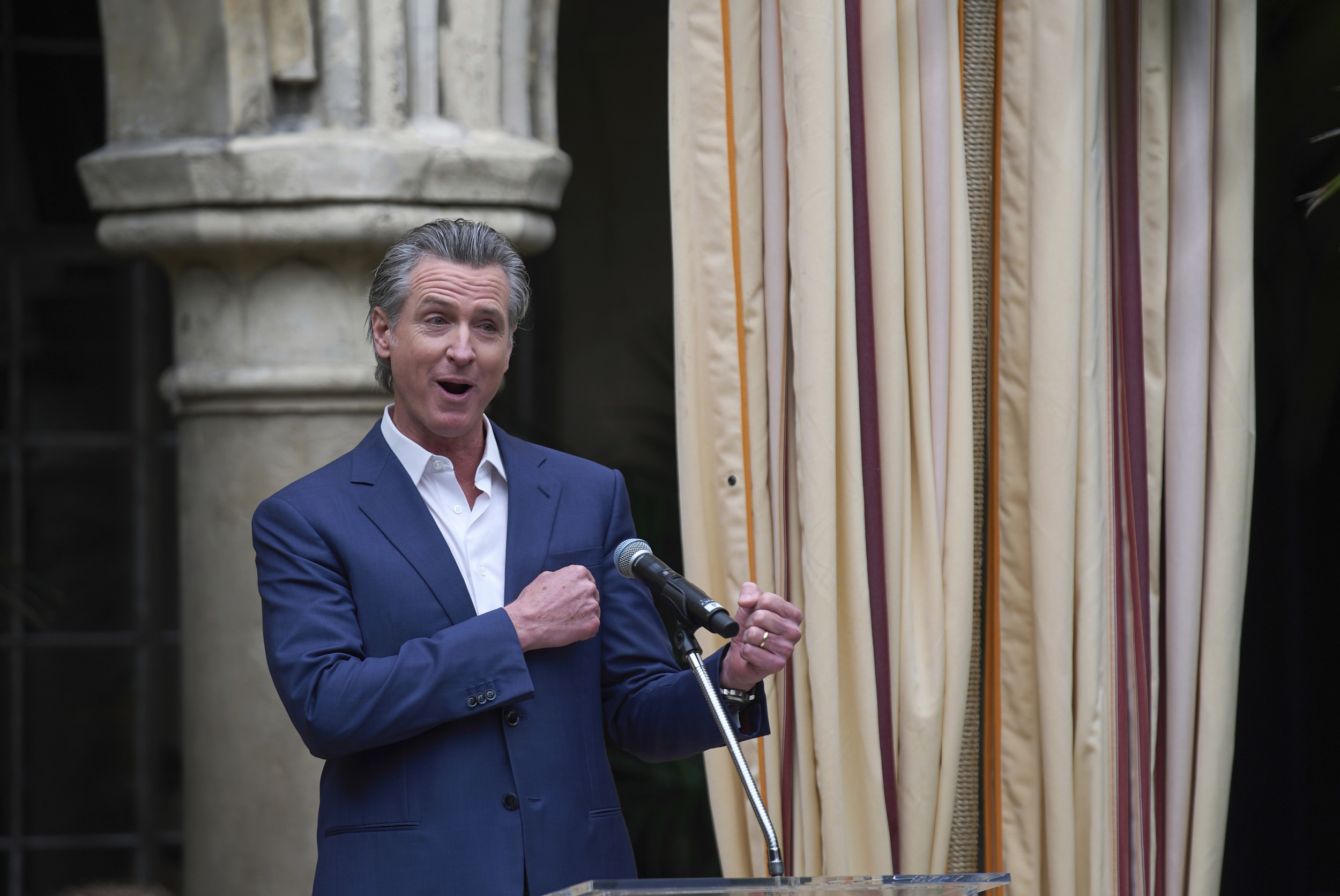- cross-posted to:
- politics@lemmy.world
- cross-posted to:
- politics@lemmy.world
spoiler
California Governor Gavin Newsom said he has directed his administration to “look at new opportunities to expand trade” as he tries to steer his state around President Donald Trump’s sprawling import tariffs. What To Know
In a post on X, Newsom addressed the U.S.'s global trading partners, writing “California is here and ready to talk.”
It comes after a Fox News report revealed that Newsom is directing his state to pursue “strategic” relationships with countries announcing retaliatory tariffs against the U.S., urging them to exclude California-made products from those taxes.
In response, White House spokesperson Kush Desai told Fox News: “Gavin Newsom should focus on out-of-control homelessness, crime, regulations, and unaffordability in California instead of trying his hand at international dealmaking.”
On Wednesday, the White House imposed a 10 percent baseline tariff on all imports, including those from U.S. allies and non-economically active regions, along with higher rates for countries with large trade surpluses against the U.S. on Wednesday.
The tariffs include a 34 percent tax on imports from China, a 20 percent tax on imports from the European Union, 25 percent on South Korea, 24 percent on Japan and 32 percent on Taiwan. Mexico and Canada, from which most U.S. produce imports come, are exempt from Trump’s latest tariffs, but the 25 percent tariffs that Trump levied on both countries last month will remain intact.
Trump’s announcement sent the markets into turmoil on Thursday, with Wall Street recording its worst day since 2020, when Covid-19 was in full swing. Meanwhile, China hit back with a 34 percent retaliatory tariff on Friday, in the first signs of an all-out trade war that could cripple imports and exports. Other nations are now also mulling over retaliatory tariffs.
Amid the turmoil, the Newsom administration is concerned that California’s almond industry, a key agricultural exporter, could lose billions of dollars, as countries like China, India, and the European Union impose retaliatory tariffs, Fox News reported.
A Newsom official also told Fox News that the new Trump tariffs will hinder access to essential supplies, like construction materials, needed to rebuild after the Los Angeles wildfires. The U.S. currently imposes a 14 percent duty on Canadian lumber, with the rate possibly rising to nearly 27 percent this year.
State officials also expressed concern that retaliatory tariffs will cause significant disruptions to supply chains between California and Baja, arguing that taxing goods each time they cross the border will raise final product prices, ultimately impacting Californians.
Why It Matters
California, the world’s fifth-largest economy, plays a crucial role in driving U.S. economic growth. As the largest importer and second-largest exporter among U.S. states, with over $675 billion in two-way trade, it holds significant economic influence. Therefore, Trump’s tariffs could have a major impact, potentially increasing costs for California businesses, disrupting global supply chains, and putting pressure on vital industries within the state.
What Happens Next
Trump’s tariffs are set to go into effect between April 5 and April 9.



I mean it’s standard tactics to hit the base of the tariff doing party so most likely yes this may work in getting foreign governments who do TARGETED tariffs (given the ones they’re subject to are across the board they may respond in the same way). In terms of applying pressure it is indeed pointless to hit California which didn’t vote for Trump or this policy per se, it makes much more sense to apply pain to red states and red voters and red state companies and industries to make them squeal and their quality of life lower and their plants lay people off so they no longer think they’re winning and begin to question this whole thing and to split the ranks of the group who’s pushing through these things.
So yes this is both posturing to present himself as a “strong leader”™ who stood up to Trump when he runs in 2028 as well as to attempt to mitigate retaliation and direct it where possible elsewhere as well as of course just seeking trade deals and investment under the banner of trying to subvert tariffs.